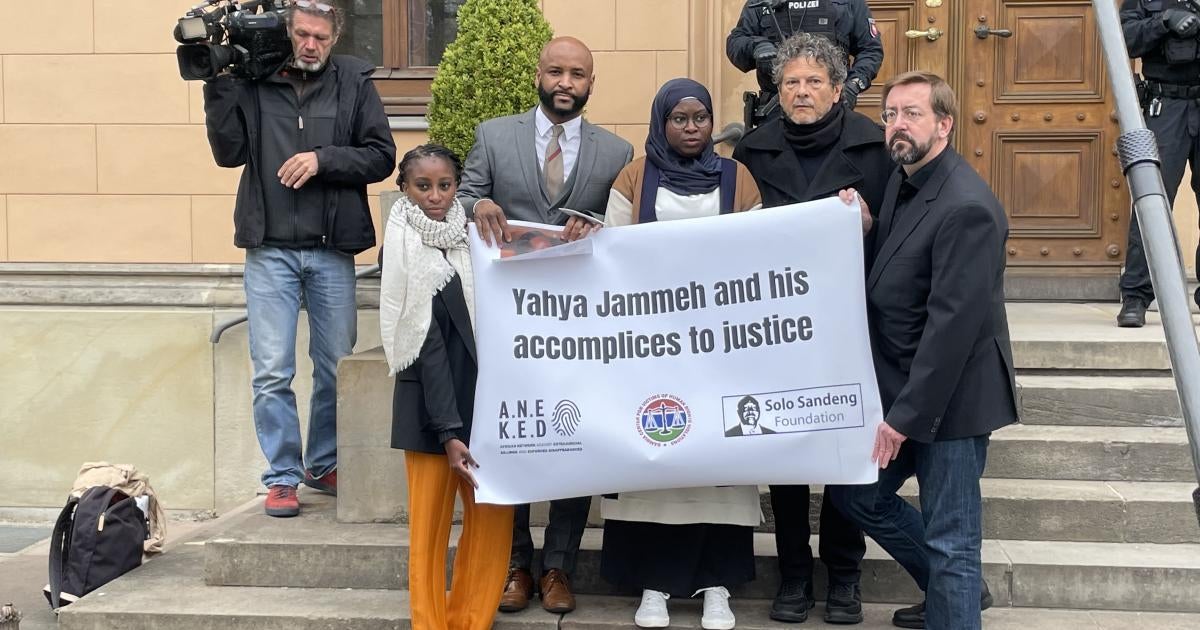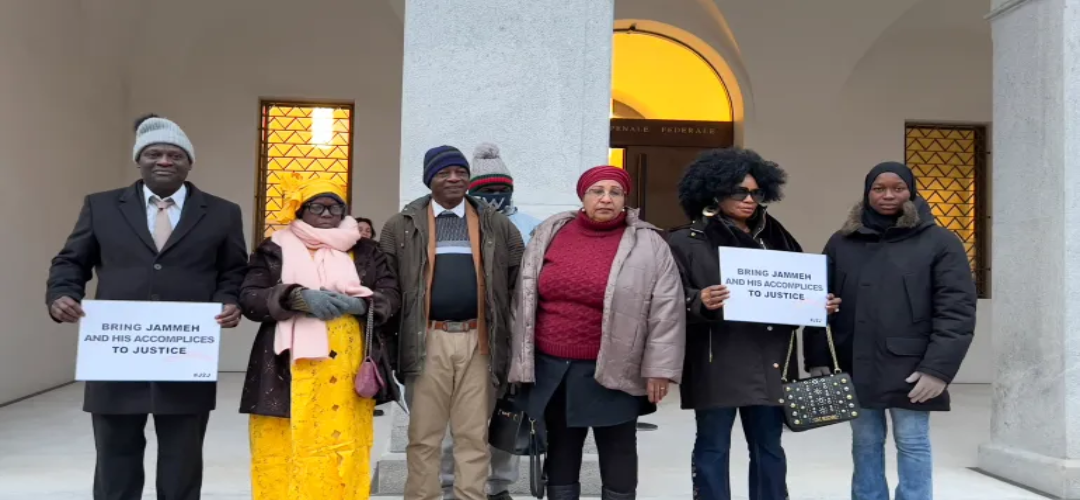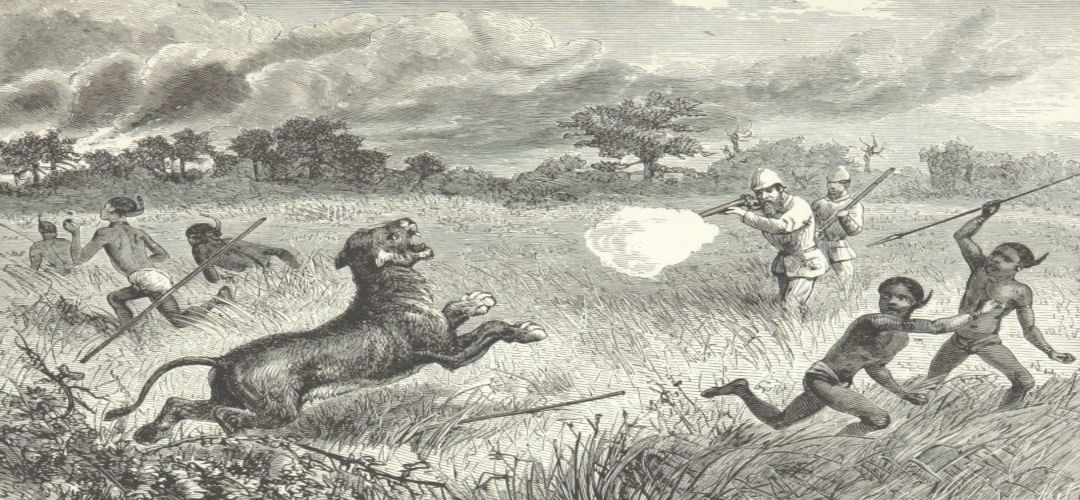Switzerland’s historic trial of Gambia’s former interior minister could make escape and evasion impossible for human rights violators.
On May 15, 2024, Switzerland’s Federal Criminal Court in Bellinzona delivered a landmark judgment by convicting Ousman Sonko, the former interior minister of Gambia, for crimes against humanity. Sonko, who served under the autocratic regime of then-President Yahya Jammeh from 2006 to 2016, was sentenced to 20 years in prison.
This case is pivotal not only for its verdict but also for its implications for international justice and the application of universal jurisdiction. It makes it difficult for despots to escape justice, even if they flee overseas away from their victims in their native lands.
Background
Ousman Sonko held several high-ranking security positions under Yahya Jammeh, whose 22-year rule was marked by widespread human rights abuses. Jammeh’s regime systematically repressed political opponents, journalists, and suspected coup plotters through arbitrary detention, torture, and extrajudicial killings.
In 2016, Sonko fled Gambia shortly before Jammeh’s regime collapsed following an election loss to Adama Barrow. Sonko sought asylum in Switzerland but was arrested in January 2017 after TRIAL International, a Geneva-based human rights organisation, filed a criminal complaint against him.
The legal proceedings against Sonko began in earnest when Swiss authorities detained him in January 2017. Over the next several years, Swiss prosecutors meticulously gathered evidence, culminating in an indictment in April 2023. The charges encompassed crimes spanning from 2000 to 2016, reflecting the widespread and systematic nature of the abuses carried out during his tenure as interior minister.
The trial commenced on January 8, 2024, and concluded on March 7, 2024. Throughout the trial, numerous witnesses testified about the horrific abuses they endured or witnessed. The prosecution presented detailed accounts of Sonko’s involvement in the killing of political opponents, the torture of detainees, and other egregious violations of human rights. Despite Sonko’s defence team arguing that there was insufficient evidence linking him directly to the crimes and criticising the lack of adequate English translation during the trial, the court found the evidence against him compelling.
The Swiss court found Sonko guilty on multiple counts of intentional homicide, torture, and false imprisonment, all as crimes against humanity. Specific crimes included the murder of a political opponent in 2000, torture and arbitrary detention in 2006, the murder of a politician in 2011, and the torture and killing of peaceful protesters in 2016.
Despite the prosecution seeking a life sentence, the court determined that Sonko’s offences did not qualify as “aggravated” cases of crimes against humanity, which would have warranted the maximum penalty. Consequently, Sonko was sentenced to 20 years, with his time in custody since January 2017 counted towards this term.

Analysis
The case against Sonko was significant for its reliance on the principle of universal jurisdiction. Universal jurisdiction allows states to prosecute individuals for serious international crimes such as war crimes, genocide, and crimes against humanity, regardless of where they were committed and irrespective of the nationality of the perpetrators or victims. This principle, enshrined in various international treaties and customary international law, underscores the notion that certain crimes are so heinous that they affect the international community as a whole.
Swiss law, which was revised in 2011 to incorporate broader universal jurisdiction provisions, played a crucial role in enabling this prosecution. The court also invoked the prohibition of crimes against humanity as a norm of customary international law, reaffirming that such crimes are universally condemnable and prosecutable.
This judgment is a landmark for several reasons. First, it marks the highest-level conviction of a former government official in Europe under the principle of universal jurisdiction. The case sets a precedent for holding high-ranking officials accountable for international crimes committed abroad, reinforcing the global fight against impunity.
Second, the verdict has significant implications for the victims of Jammeh’s regime, providing a sense of justice and acknowledgement of their suffering. The trial demonstrated the effectiveness of international collaboration, with TRIAL International and other advocacy groups playing crucial roles in gathering evidence and supporting the prosecution.
Furthermore, the judgment sends a powerful message to other perpetrators of international crimes that they cannot evade justice by fleeing their home countries. It underscores that even after many years, accountability is possible, thereby strengthening the international legal framework against crimes against humanity.
Sonko’s defence lawyer, Philippe Currat, announced plans to appeal. He argued that the court failed to establish a direct connection between Sonko and the specific crimes, relying instead on a notion of collective responsibility due to his ministerial position. Currat also contended that Swiss law, revised in 2011, could not fairly be applied to acts committed before that date, challenging the court’s temporal jurisdiction.
Additionally, there were criticisms regarding the fairness of the trial proceedings. Sonko’s daughter and his defence team argued that the lack of comprehensive English translation during the trial violated his right to a fair trial. Important segments of the proceedings, including closing arguments, were not translated, potentially impairing Sonko’s ability to understand and participate fully in his defence.
Human rights advocates also pointed out the court’s reluctance to fully address sexual violence as a crime against humanity. Despite compelling testimonies, charges of rape were treated as individual crimes rather than part of the systematic repression, which some argued reflects a broader issue of under recognition of sexual violence in international jurisprudence.
Ousman Sonko’s conviction is expected to catalyse further justice efforts both in Gambia and internationally. In Gambia, it pressures President Adama Barrow’s government to take more decisive action in prosecuting crimes from the Jammeh era, including potentially pursuing Jammeh himself, who remains in exile in Equatorial Guinea.
In particular, the case underscores the necessity for comprehensive legal frameworks that allow for the prosecution of international crimes domestically. Countries without such frameworks may be unable to prosecute individuals like Sonko, thereby perpetuating a cycle of impunity. The Swiss example demonstrates that with the right legal tools and international collaboration, justice can be pursued even many years after the crimes have occurred.
The ruling illustrates the critical role of non-governmental organisations (NGOs) in initiating and supporting prosecutions of international crimes. TRIAL International’s involvement was instrumental in bringing Sonko to justice, demonstrating how civil society can drive accountability when state mechanisms fall short.
This further highlights the importance of gathering and preserving evidence of international crimes. Securing convictions in such cases would be exceedingly difficult without the meticulous documentation of abuses and the testimonies of victims and witnesses. This underscores the need for robust documentation efforts in conflict and post-conflict settings.
It also reinforces the importance of international cooperation. The prosecution relied on evidence and testimonies from multiple countries, illustrating how cross-border collaboration can enhance the effectiveness of justice processes. This cooperation is essential for addressing crimes that transcend national borders and ensuring that perpetrators cannot escape justice by moving to different jurisdictions.
Assessment
- Looking forward, the Sonko judgment may influence ongoing and future prosecutions of international crimes. It sets a legal and moral precedent that could encourage other countries to pursue similar cases under universal jurisdiction. This could lead to a more concerted international effort to address impunity for crimes against humanity, war crimes, and genocide.
- Moreover, the case may spur legal reforms in other countries, encouraging them to adopt or strengthen laws that enable the prosecution of international crimes. Such reforms could make it easier for victims to seek justice and for perpetrators to be held accountable, regardless of where the crimes occurred.
- The judgment also highlights the need for continuous support to victims of international crimes. While legal proceedings are a crucial aspect of justice, they must be complemented by measures that address the needs of survivors, such as psychosocial support, reparations, and community reconciliation efforts. A holistic approach to justice that includes these elements can contribute to long-term peace and stability.




